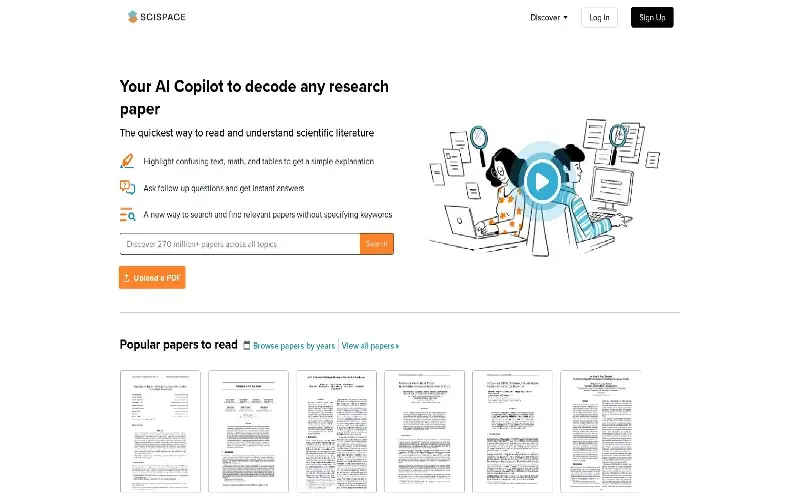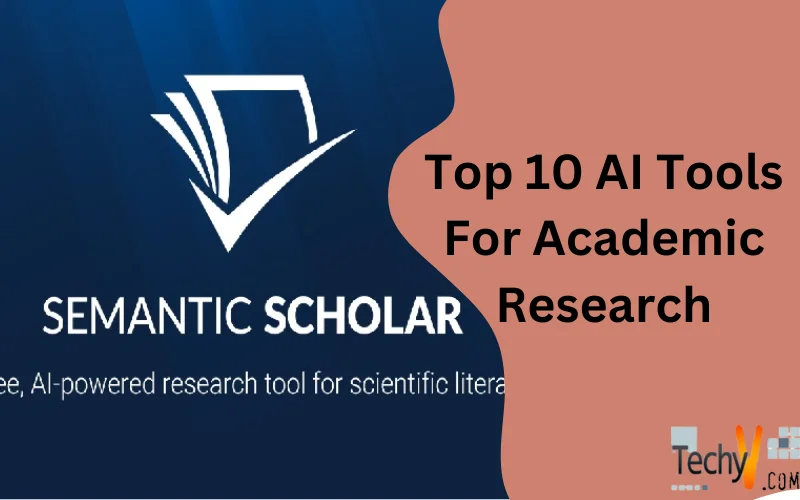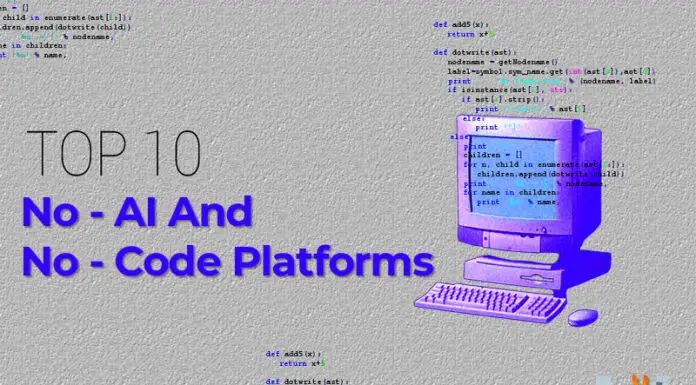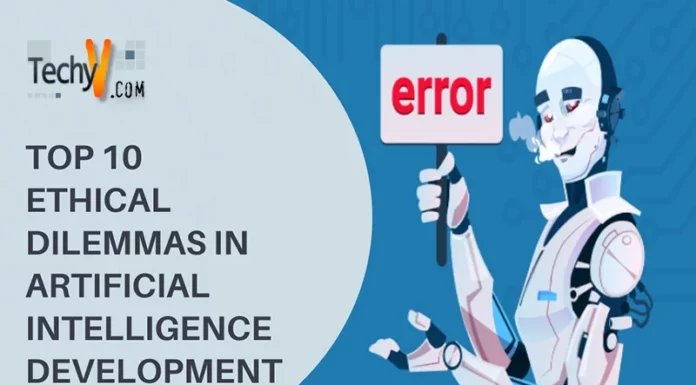Artificial intelligence (AI) is significantly changing the landscape of academic research, which is a field that is undergoing ongoing change. AI-powered technologies are improving the accuracy and efficiency of the research process at all stages, from locating sources to analysing data. Due to the abundance of information available nowadays, academics and researchers need assistance sorting through and arranging sources. Academics and artificial intelligence (AI) are becoming more and more entwined, and as AI advances, academics will likely continue to either embrace or reject its promise. With AI’s quick rise in popularity, the market is flooded with brand-new, gleaming AI research instruments. Here is a comprehensive review of all the greatest options accessible to make your research quicker and simpler.
1. Consensus
Consensus can be sought about connections between ideas or even cause and effect, such as whether immigration boosts the economy. It will provide you with an answer based on academic research, including naming the publications and summarizing the best ones. Additionally, Consensus provides summaries for each study paper, making it straightforward to judge its applicability. Six topics are covered by the AI-powered search engine: economics, sleep, social policy, medicine, mental health, and dietary supplements.
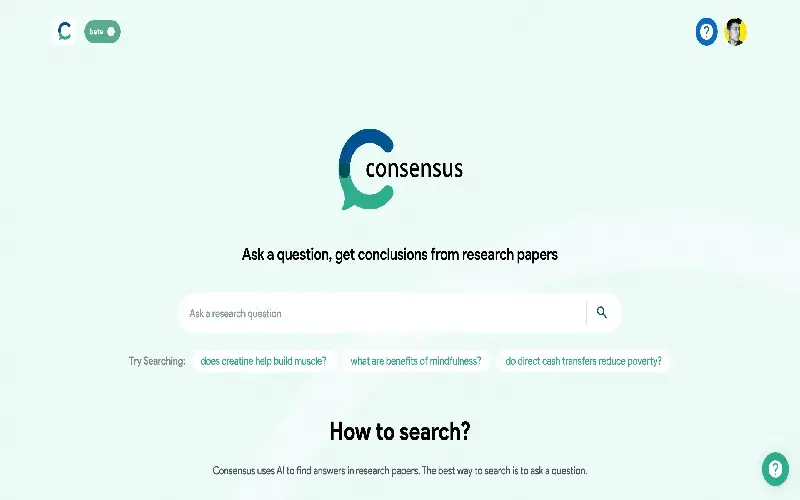
2. Scite
Users can collaborate on essays and research papers using Scite’s Assistant, which also allows them to look up evidence to support or disprove their arguments. Users can type straightforward inquiries to receive answers based on the entire texts of research articles. The tool allows users to sift through millions of research papers to get reliable material and produce grant proposals or essay draughts.

3. Elicit
Elicit’s knowledge is entirely research-based, making it a more trustworthy and verified source of data. It makes it simpler to uncover significant study because it can locate pertinent publications without requiring exact keyword matches.Along with providing numerous research activities like text-categorization, summarising, and brainstorming, Elicit may also highlight crucial passages from the document that are pertinent to the user’s question.
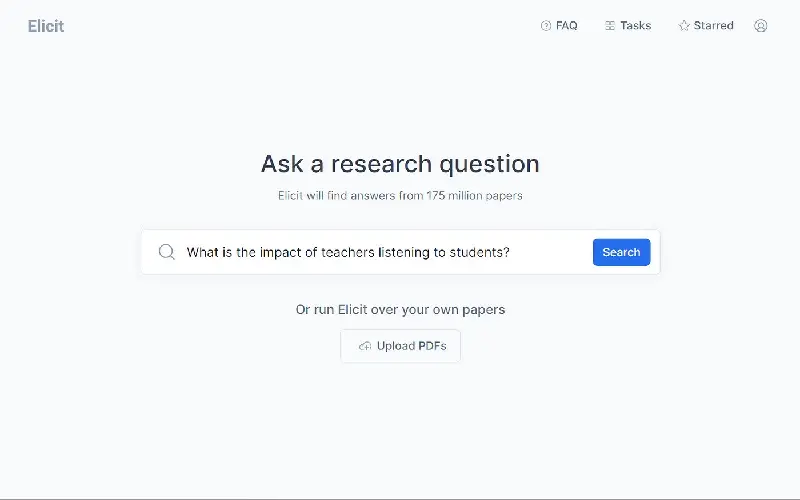
4. Trinka
AI Trinka was created for specialised and academic writing, and it is an online sentence structure checker and language proofreader. It is meant to catch mistakes that regular grammar checkers miss, like issues with subject-verb agreement and syntax, among others. It also includes components that go beyond grammar and spelling, such as style guides, a professional tone, the use of technical terms, and conciseness.
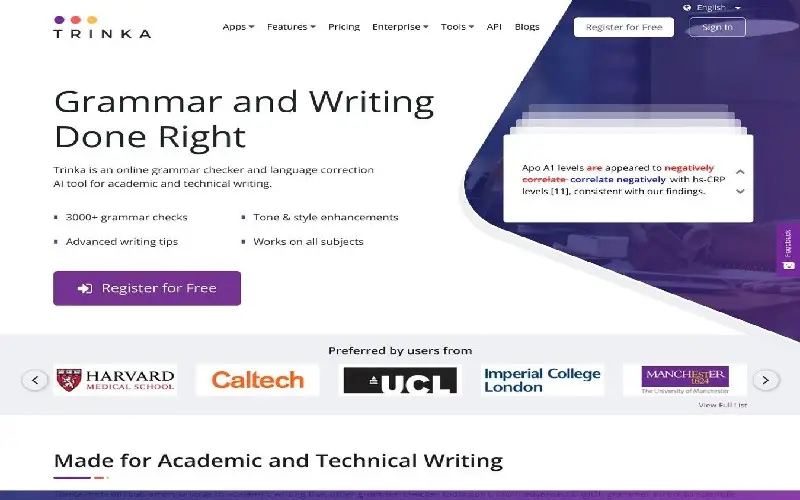
5. Chat PDF
Through the AI programme ChatPDF, users can have a conversation with a PDF file. Users don’t need to log in to access any of their PDFs, including books, research papers, manuals, articles, and legal documents.Similar to ChatGPT, ChatPDF is a platform for academic publications. For reading and evaluating journal articles, it might be helpful.Users can quickly extract information from large PDF files with ChatPDF, saving time when taking notes or writing summaries. You may speak to PDF documents in natural-sounding dialogues thanks to this AI technology.
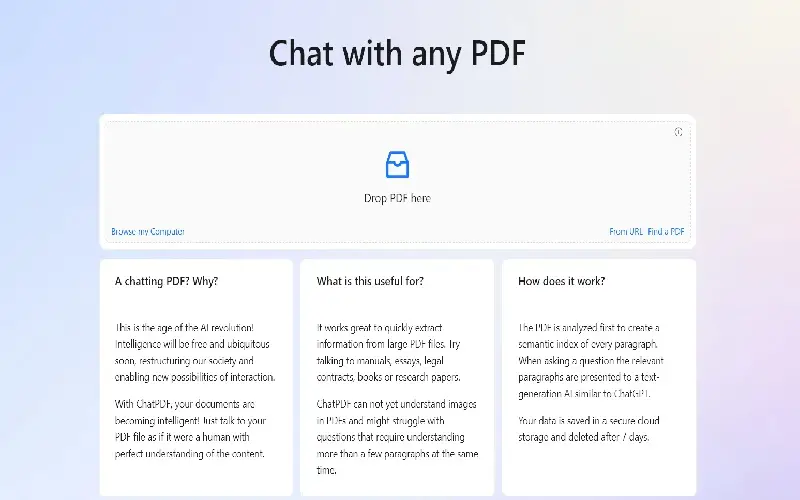
6. Research Rabbit
A free resource for accelerating research is called Research Rabbit.Enter a term or phrase, and Research Rabbit will use Semantic Scholar or PubMed to find papers that match your search criteria.Research Rabbit will ask you to look up a topic and add articles to a Collection when you sign up.You can do away with manually listing your sources because Research Rabbit makes the research process more efficient. Use Filter to perform a keyword or phrase search for a certain paper in your collection. The papers in a Collection can also be organised according to date, author, and the quantity of citations.
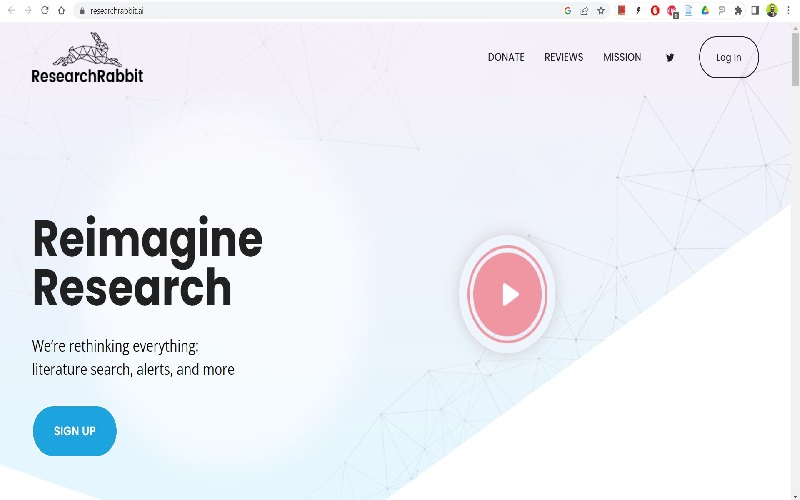
7. Scholarcy
A quick and easy way to study and assess the importance of documents like articles, reports, and book chapters is to use the online summarising tool Scholarcy. Any Word or PDF document can be used to make summary flashcards, which are then shown in an orderly and understandable manner.Automatic reference extraction, open access source linking, figure, table, and picture extraction are some of the services offered by Scholarcy.Additionally, Scholarcy provides extensions for the Chrome and Edge browsers that link to open-access repositories and provide a searchable database of summary cards that are accessible from any device.
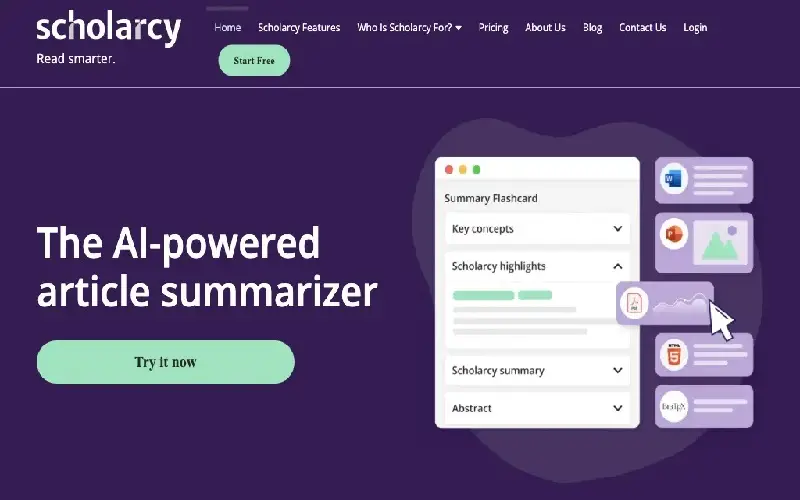
8. Semantic Scholar
Semantic Scholar is an academic search engine powered by artificial intelligence that enables users to sift through millions of scholarly articles in search of content that is relevant to their research topic and is suitable for educational purposes. More than 200 million academic papers are accessible through publisher connections, data sources, and web crawls. It can automatically generate one-sentence summaries of each article to help you choose which to read in-depth so that you can concentrate on what matters most.

9. Bit.ai
The abundance of information and the variety of formats it may be found in, such as blogs, essays, movies, infographics, and photographs, present two problems. Finding and organising all the data relevant to the many areas of your study may require a lot of work. You may find and save important information using Bit.ai, including multimedia-rich, interactive research. As a cloud-based platform for collaboration, it also makes it simple for other co-researchers to share this information in real time.
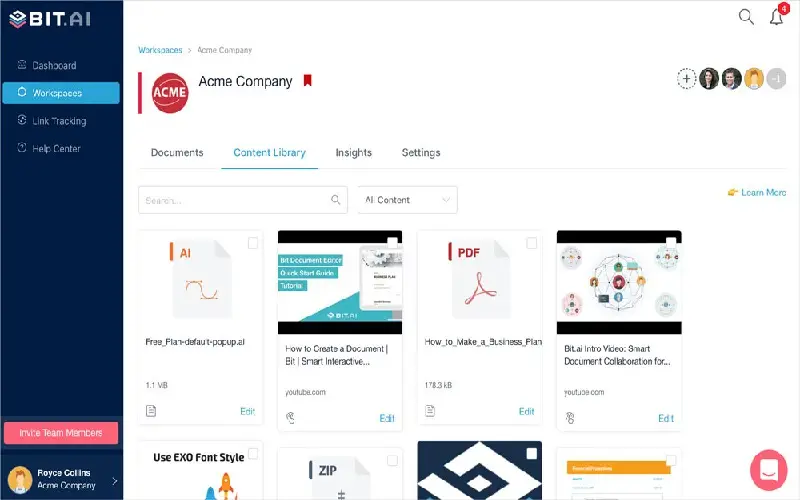
10. SciSpace
Users can browse, comprehend, and contribute scientific publications on SciSpace, an AI-powered website. More than 270 million articles, authors, topics, journals, and conferences are included in its extensive searchable database. An AI copilot to decipher any study paper is one of its numerous services, along with a plagiarism checker, journal submission, XML converters, and many others.It is better suited than Word for research writing because it links users to more than 45,000 verified journal formats that researchers can choose from.
